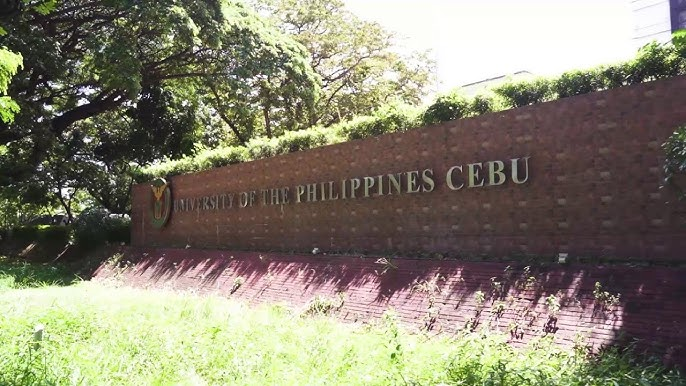AI Am Ready: Artificial Intelligence as Pedagogical Scaffold
Date:
July 23rd, 2025 (UTC +8)
Organizer:
College of Communication, Art and Design, University of the Philippines Cebu
Symposium Chair:
Personal Bio:
Gregg S. Lloren earned his MSc by Research in Interdisciplinary Creative Practices (Merit) from the Edinburgh College of Art, The University of Edinburgh, in 2017. For his PhD project at the same university, he conducted an interdisciplinary investigation on immersive technology - specifically virtual reality (VR) for the reconstruction of impaired memory (e.g. dementia) - under a broad spectrum of hybrid framework: linguistics; cognitive science; social semiotics and the multimodality of visual language; digital media architectonics; media consciousness and subjectivity; the science of digital media design and production, and the art of its dissemination. Gregg S. Lloren is a faculty member of the College of Communication, Arts, and Design, University of the Philippines Cebu, a constituent unit of the country's national university, University of the Philippines System. He holds a bachelor’s degree in philosophy and letters from San Beda University, Manila, Philippines.
Committe Member
| Dr. Aurelio Vilbar | University of the Philippines Cebu | apvilbar1@up.edu.ph |
Background
Artificial Intelligence (AI) is revolutionizing education by offering new ways to personalize learning, automate administrative tasks, and enhance student engagement. From intelligent tutoring systems and adaptive learning platforms to AI-powered content generation and multimodal analytics, AI is increasingly integrated into teaching and learning environments. These advancements promise to support educators in addressing diverse learning needs, optimizing assessment processes, and fostering creative, inquiry-based learning. However, the rapid adoption of AI in education raises critical questions about pedagogical effectiveness, ethical implications, and accessibility. As AI becomes an integral part of learning environments, there is an urgent need to explore its role as a pedagogical scaffold—a support mechanism that enhances, rather than replaces, human-centered learning experiences. This symposium provides a space for educators, researchers, and AI practitioners to examine how AI can serve as an effective, ethical, and inclusive learning scaffold.
Goal/Rationale:
The growing reliance on AI in education presents both opportunities and challenges. AI-driven systems can personalize learning by adapting to students’ progress, providing real-time feedback, and facilitating interactive learning experiences. However, concerns such as algorithmic bias, data privacy, and the potential for over-reliance on automation must be addressed to ensure AI’s responsible integration into education. Through interactive discussions and hands-on activities, participants will critically evaluate AI’s role in education and co-develop strategies for leveraging its potential while mitigating risks.
This symposium seeks to explore AI’s role as a cognitive scaffold that supports student learning through adaptive technologies, investigate how AI can enhance formative and summative assessments through automated feedback and data-driven insights, examine AI’s ability to support multimodal learning, including text-based, auditory, and visual learning strategies, address ethical and equity concerns to ensure AI enhances rather than exacerbates educational disparities, and foster collaboration between educators, instructional designers, and AI developers to co-create best practices for AI-assisted pedagogy.
Call for Papers
This symposium invites educators, researchers, instructional designers, AI developers, and policymakers to explore the intersection of artificial intelligence and education. No prior technical expertise is required; participants are encouraged to engage with an open mind and discuss AI’s diverse implications for learning environments. Key themes will include AI-driven personalization and adaptive learning systems, automated feedback and assessment tools, and multimodal AI-assisted learning strategies. The symposium will also address ethical concerns in AI-powered education, such as bias, privacy, and transparency, while examining AI's role in promoting equity and inclusion. Through collaborative discussions, case studies, and hands-on AI tool exploration, participants will create a shared roadmap for responsible AI implementation in education, ensuring that AI serves as an empowering pedagogical resource rather than an opaque or exclusionary barrier. By the end of the symposium, attendees will gain insights into AI's educational implications and identify actionable strategies for ethical adoption in their contexts, with discussions extending beyond the guiding themes.
Topics
The main topics of this symposium are listed below.
Pedagogy- Digital Pedagogy and E-Learning
- Sports Pedagogy and Physical Literacy
- Inclusive Education and Social Learning
- Trauma-Informed Teaching
- Gamification in Education
- EdTech and Artificial Intelligence in Learning
- Mindfulness in Education
- STEM and STEAM Education
- Culturally Responsive Teaching
- Collaborative Learning Strategies
- Experiential and Cooperative Pedagogy
- Differentiated Learning Approaches
- Assessment for Learning
- Multisensory and Physical Education
- Social and Industrial-Organizational Psychology
- Neuroeducation and Learning Sciences
- Emotion and Motivation in Learning
- Psychology of Social Media Use
- Mental Health in Educational Contexts
- Psychological Resilience and Adaptability
- Applied Positive Psychology
- Virtual and Augmented Reality in Therapy
- Mind-Body Interaction in Sports Psychology
- Behavioral Economics and Decision Making
- Cross-Cultural Psychological Assessment
- Behavioral and Cognitive Psychology
- Developmental and Educational Psychology
- Social and Industrial-Organizational Psychology
Meanwhile, submissions aligned with the overall conference theme are also welcome.
Educational Structures- Digital Transformation in Education
- Global Education Policy Trends
- Hybrid and Blended Learning Models
- Data-Driven Decision Making in Education
- Equity and Access in Education
- Professional Learning Communities (PLCs)
- Competency-Based Education
- Adaptive and Personalized Learning
- Global Citizenship Education
- Mental Health and Well-being in Schools
- Educational Management (Autocratic vs. Democratic; Centralized vs. Decentralized)
- Primary, Secondary, and Higher Education Structures
- Professional Development in Education
- Educational Policy and Reform
- Digital Sociology
- Sociology of Climate Change
- Migration and Globalization
- Post-Colonial Sociology
- Sociology of Mental Health
- Inequality and Social Justice
- Gender Studies in Sociology
- Core Fields (e.g., Theoretical)
- AI and Society
- Sociology of Technology
- Social Media Impact Sociology, Historical Sociology)
- Specialized Areas (e.g., Urban Sociology, Criminology, Rural Sociology)
- Exercise Physiology and Performance Optimization
- Sports Nutrition and Metabolism
- Injury Prevention and Rehabilitation
- Strength and Conditioning Techniques
- Ethics in Sports and Fair Play
- Human Kinetics and Motor Skills
- Sports Sociology and Cultural Identity
- Gender Studies in Sports
- Inclusion and Accessibility in Sports
- Mental Health in Competitive Sports
- Sports Policy and Governance
- Sports Psychology and Motivation
- Epistemic Injustice
- Posthumanism
- New Materialism
- Speculative Realism
- Digital Ethics
- Affect Theory
- Decolonial Philosophy
- Neurophilosophy
- Environmental Philosophy
- Free Will and Determinism
- Ontology
- Epistemology
- Global Justice and Cross-Cultural Ethics
Submission
All submitted papers should report original and unpublished work, experimental or theoretical, and are not under consideration for publications elsewhere. All papers should be no less than 4 pages in length and must strictly follow the format of the symposium template. All papers are subject to reviews and edits. Prospective authors are kindly invited to submit full text papers that includes title, abstract, introduction, tables/figures and references. Other styles of papers are not accepted. Please submit your papers in both .doc/.docx AND .pdf formats as attachments via email to sympo_cebu@iceipi.org by the given deadline. It is unnecessary to submit an abstract in advance.
Publication
Accepted papers of the symposium will be published in Lecture Notes in Education Psychology and Public Media (Print ISSN 2753-7048), and will be submitted to Conference Proceedings Citation Index (CPCI), Crossref, CNKI, Portico, Google Scholar and other databases for indexing. The situation may be affected by factors among databases like processing time, workflow, policy, etc.
* The papers will be exported to production and publication on a regular basis. Early-registered papers are expected to be published online earlier
This symposium is organized by ICEIPI 2025 and it will independently proceed the submission and publication process
Ways to Participate
Attendance Onsite
The symposium welcomes participants to attend on-site and share the innovative experiences and researches with the group. Therefore, we provide some general information about the visa application. If you want to attend the symposium on-site, please email the symposium committee: sympo_cebu@iceipi.org.
VISA
Apply for your Philippine Visa - The Easy and Convenient Way!
In order to ensure the information is correct and up to date, there may be changes which we are not aware of. And different countries have different rules for the visa application. It is always a good idea to check the latest regulations in your country. You should confirm details with your local Consular Office. This page just gives some general information of the visa application.
Philippines Visa Infomation
Visa required. If the traveler has one of the following passports, the bearer may enter the Philippines without a visa for a stay not exceeding seven (7) days for tourism purposes, provided that the traveler has a national passport valid for at least six (6) months beyond contemplated stay and holds a valid ticket for the return journey to country of origin or next country of destination:
1.) Holders of Hong Kong British passports; and
2.) Mainland Chinese for tourism with a valid or unexpired Australian, Japanese, Canadian, Schengen or US visa.
The 7-day visa-free entry may be extended by an additional fourteen (14) days to complete a maximum twenty-one (21) days.
If the traveler has one of the following passports, the bearer may enter the Philippines without a visa for a stay not exceeding fourteen (14) days for tourism purposes, provided that the traveler has a national passport valid for at least six (6) months beyond contemplated stay and holds a valid ticket for the return journey to country of origin or next country of destination:
1.) Hong Kong SAR passport holders; and
2.) Macau SAR passport holders.












